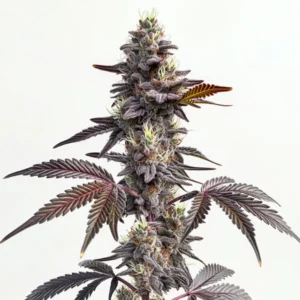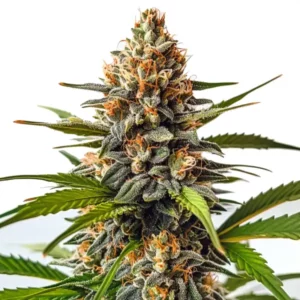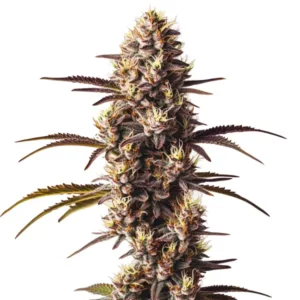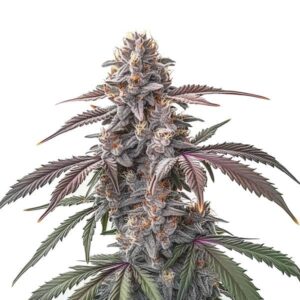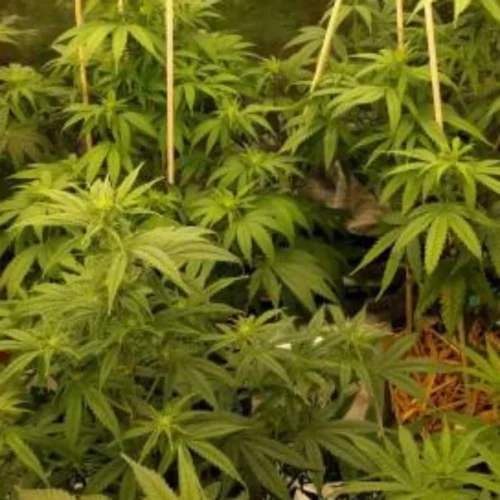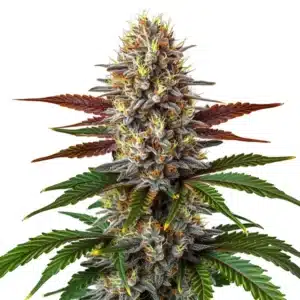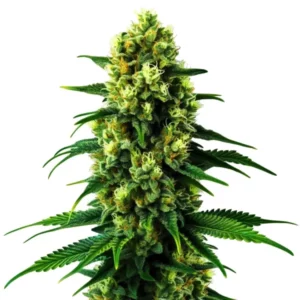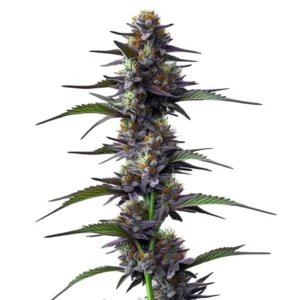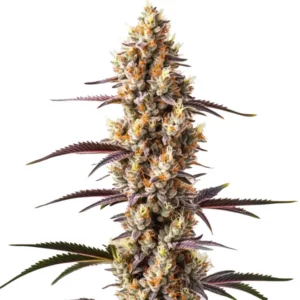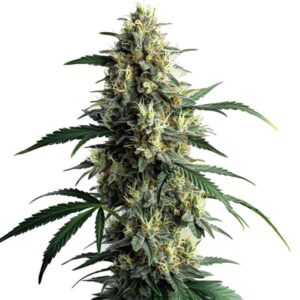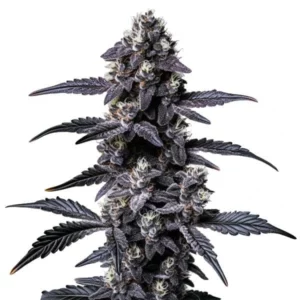Pine is one of the most abundant and versatile terpenes found in nature. Known for its fresh, forest-like aroma, this terpene is responsible for the signature scent of pine trees and is also found in a variety of plants including rosemary, basil, and cannabis. It’s important to note that when we refer to “pine terpene,” we are actually talking about “pinene,” which is the specific terpene that gives pine trees their characteristic scent. Pinene exists in two primary forms: alpha-pinene and beta-pinene, both of which contribute unique effects and potential health benefits. In this guide, we’ll explore the properties of pinene, its therapeutic potential, and how it interacts with the body.
Beyond its distinctive scent, pinene is highly valued in the world of alternative medicine and aromatherapy. Its ability to act as a bronchodilator, improving airflow in the lungs, has made it a popular choice for treating respiratory issues. Moreover, pinene is not just limited to medicinal use; its fresh and uplifting aroma has found a place in various commercial products, including essential oils, perfumes, and cleaning agents.
Because of its widespread occurrence in nature, pinene plays a significant role in the ecosystem. Plants produce pinene as a defense mechanism against herbivores and pathogens. For humans, inhaling pinene can have various therapeutic effects, such as reducing stress and improving cognitive function. As research continues, the full potential of this remarkable terpene is gradually being uncovered.
What is Pine Terpene?
Pine is a monoterpene, a class of terpenes that serve as building blocks for more complex molecules. This organic compound is produced by many plants as part of their natural defense mechanisms, helping to deter herbivores and protect against pathogens. The distinctive pine scent that characterizes pinene is more than just pleasant—it plays a crucial role in the plant kingdom and offers various benefits to humans as well.
Pinene is structurally categorized into two isomers: alpha-pinene and beta-pinene. Both of these isomers share the same molecular formula but differ in their chemical structure, leading to slight variations in their aroma and effects. Alpha-pinene is more commonly found and is often associated with the sharp, fresh scent of pine, while beta-pinene has a slightly different aroma with earthy and herbal undertones.
In addition to its protective role in plants, pinene is also responsible for attracting pollinators, making it an essential compound for the survival and reproduction of many plant species. For humans, this terpene’s ability to influence mood and cognition makes it a key component in various therapeutic applications. As more people turn to natural remedies, pinene continues to gain attention for its broad range of benefits.
Alpha-Pinene
Alpha-pinene is the more common of the two pinene isomers. It has been studied for its anti-inflammatory, bronchodilator, and cognitive-enhancing properties. Notably, alpha-pinene may help improve memory retention and counteract some of the adverse effects of THC, making it particularly interesting for those who use cannabis.
Alpha-pinene’s role in enhancing memory and focus has made it a subject of interest in cognitive research. Some studies suggest that this terpene can help protect against cognitive impairments, such as those seen in Alzheimer’s disease. Additionally, alpha-pinene’s bronchodilator properties are being explored for their potential in treating respiratory conditions like asthma, making it a versatile compound with numerous applications.
Moreover, alpha-pinene is not limited to medicinal uses. Its refreshing scent is a common ingredient in perfumes and cleaning products, where it provides a natural, invigorating fragrance. This wide range of uses highlights alpha-pinene’s versatility and its potential as a key component in both health and wellness products as well as everyday household items.
Beta-Pinene
Beta-pinene, though less common, shares many therapeutic properties with alpha-pinene. It is known for its antimicrobial and anti-inflammatory effects, and like alpha-pinene, it may also support respiratory function by acting as a bronchodilator. Beta-pinene’s scent is slightly different, with more earthy and herbal notes, often reminiscent of dill or basil.
The distinct aroma of beta-pinene makes it a valuable component in the flavor and fragrance industries. It is often used to impart a fresh, herbal note to a variety of products, including food, beverages, and perfumes. Additionally, beta-pinene’s antimicrobial properties have been utilized in natural preservatives and disinfectants, providing a green alternative to chemical-based solutions.
In the realm of therapeutic applications, beta-pinene’s anti-inflammatory effects are of particular interest. Research has shown that beta-pinene can reduce inflammation in the body, making it a potential treatment for conditions like arthritis. Furthermore, its ability to act as a bronchodilator suggests that beta-pinene could play a role in respiratory therapies, offering a natural way to support lung health.

Promos & Deals
What Does Pinene Smell Like?
Pinene has a distinctly fresh and clean aroma, often compared to walking through a pine forest. The scent is sharp, slightly sweet, and refreshing, with alpha-pinene being more resinous and reminiscent of pine needles, while beta-pinene offers a more complex aroma with hints of herbs like basil and parsley.
This familiar scent is more than just a pleasant aroma; it also has a range of therapeutic benefits. Aromatherapists often use pinene for its invigorating and mood-enhancing properties. Inhaling pinene can lead to feelings of clarity and focus, making it a popular choice for those looking to boost their mental acuity. Additionally, pinene’s scent is thought to have calming effects, helping to reduce stress and promote relaxation.
Pinene’s aroma is also a key player in the cannabis experience. Strains high in pinene often deliver a crisp, forest-like smell that can enhance the overall sensory experience. This terpene’s scent profile not only contributes to the distinctive aroma of certain cannabis strains but also plays a role in their effects, adding to the complexity and richness of the user’s experience.
Pinene’s Potential Effects and Benefits
Pinene’s effects are diverse and have been the subject of various scientific studies. It is known for its anti-inflammatory, antimicrobial, and bronchodilator properties, among others. Pinene may also play a role in neuroprotection and cognitive function, potentially aiding in the prevention of memory loss and cognitive decline.
One of the most notable effects of pinene is its ability to enhance cognitive function. By inhibiting the breakdown of acetylcholine, a neurotransmitter crucial for learning and memory, pinene may help improve focus and retention of information. This has made pinene a compound of interest in research on Alzheimer’s disease and other forms of dementia, where it could potentially slow the progression of cognitive decline.
In addition to its cognitive benefits, pinene is also recognized for its antimicrobial properties. Studies have shown that pinene can be effective against a variety of harmful microorganisms, including bacteria and fungi. This makes it a valuable component in natural antiseptics and disinfectants, offering a safer alternative to synthetic chemicals. Moreover, its anti-inflammatory effects further extend pinene’s therapeutic potential, providing relief for conditions like arthritis and other inflammatory diseases.
Health Benefits and Uses
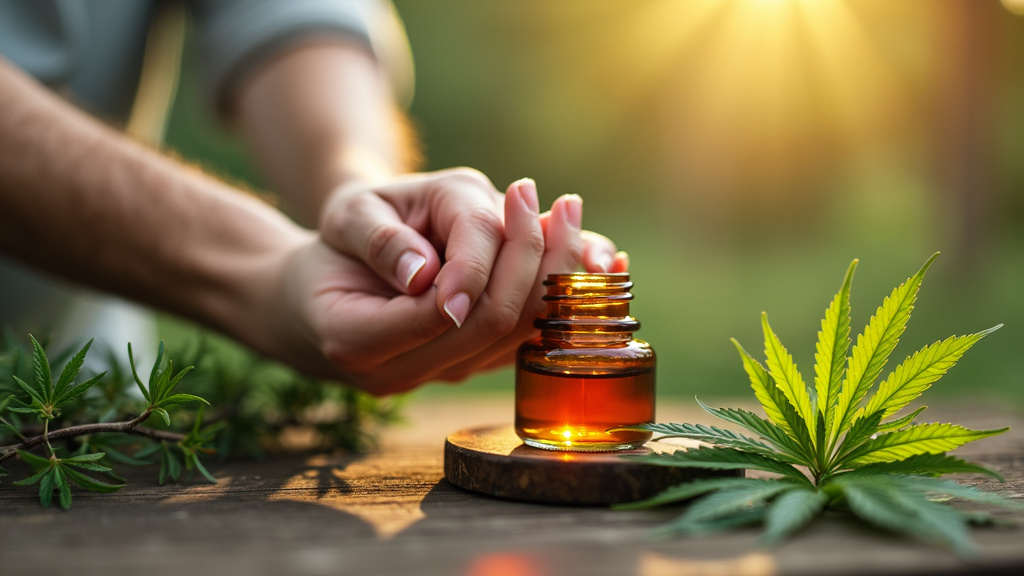
Anti-Inflammatory Effects
Pinene has been shown to reduce inflammation, which can help in managing conditions like arthritis. Its anti-inflammatory properties are supported by studies that demonstrate pinene’s ability to lower inflammatory markers in the body.
The anti-inflammatory effects of pinene are particularly beneficial in conditions where inflammation is a major symptom, such as in rheumatoid arthritis and inflammatory bowel disease. By reducing inflammation, pinene can help alleviate pain and improve the quality of life for those suffering from these chronic conditions. Its natural origin also makes it an attractive alternative to traditional anti-inflammatory drugs, which often come with a host of side effects.
In addition to its systemic anti-inflammatory effects, pinene has also been found to be effective when applied topically. Creams and ointments infused with pinene can be used to treat localized inflammation, such as that caused by injuries or skin conditions like eczema. This versatility in application further underscores pinene’s value in natural medicine.
Antimicrobial
Pinene is effective against a variety of pathogens, including bacteria and fungi. Its antimicrobial properties make it useful in treating infections and in preserving food and cosmetics.
The antimicrobial properties of pinene are significant in an age where antibiotic resistance is becoming a major health concern. Research has shown that pinene can inhibit the growth of several strains of bacteria, including those resistant to conventional antibiotics. This makes pinene a potential candidate for the development of new antimicrobial agents that could help combat resistant infections.
Furthermore, pinene’s antimicrobial effects extend beyond just bacteria. It has also been shown to be effective against certain types of fungi, making it a useful component in antifungal treatments. In the food industry, pinene’s ability to inhibit microbial growth can help preserve the freshness of products, offering a natural alternative to chemical preservatives.
Respiratory System
As a bronchodilator, pinene can help open airways, making it beneficial for individuals with asthma or other respiratory conditions. It may also enhance lung function when combined with other terpenes and cannabinoids.
Pinene’s bronchodilator properties are particularly valuable for individuals suffering from conditions like asthma, bronchitis, or chronic obstructive pulmonary disease (COPD). By relaxing the muscles around the airways, pinene can help improve airflow and make breathing easier. This makes it a promising natural remedy for respiratory issues, particularly for those who prefer to avoid synthetic bronchodilators.
In addition to its bronchodilator effects, pinene has also been studied for its potential to protect lung tissue from damage. Some studies suggest that pinene can help reduce inflammation and oxidative stress in the lungs, which are common contributors to respiratory diseases. This potential protective effect makes pinene a valuable compound for maintaining overall lung health, especially in environments where air quality is poor or in individuals exposed to respiratory irritants.
Moreover, pinene’s ability to act as a bronchodilator can also enhance the effects of other therapeutic compounds. When combined with other terpenes or cannabinoids, such as THC or CBD, pinene can amplify the respiratory benefits, making it a key component in holistic treatments for respiratory conditions.
Anxiety-Reducing Effects
Pinene has potential anxiolytic effects, which may help reduce anxiety. While more research is needed, preliminary studies suggest that pinene could be an effective natural remedy for stress and anxiety.
The anxiolytic effects of pinene are thought to be related to its ability to influence the brain’s neurotransmitters, particularly those involved in the body’s response to stress. Pinene may help increase the availability of neurotransmitters like serotonin, which play a key role in mood regulation. This mechanism could explain why pinene is often used in aromatherapy to create calming environments that promote relaxation and mental clarity.
Additionally, pinene’s effects on anxiety might be enhanced when used in combination with other terpenes and cannabinoids. The entourage effect, where multiple compounds work together to produce a more significant therapeutic effect, is particularly relevant here. Pinene, combined with CBD, for example, could provide a powerful natural solution for those looking to manage anxiety without the side effects often associated with pharmaceutical drugs.
Neuroprotective
Research indicates that pinene may protect brain cells from damage, potentially aiding in the prevention of neurodegenerative diseases like Alzheimer’s. Its ability to enhance memory and cognitive function makes it a promising compound for brain health.
Pinene’s neuroprotective properties are primarily linked to its antioxidant effects, which help to neutralize free radicals that can damage brain cells over time. This makes pinene particularly valuable in the prevention of diseases that are characterized by oxidative stress, such as Alzheimer’s and Parkinson’s. By reducing oxidative damage, pinene may slow the progression of these diseases and support overall cognitive health.
In addition to its antioxidant properties, pinene’s ability to enhance memory and learning has made it a subject of interest in cognitive enhancement. Some studies suggest that pinene could be used as a natural cognitive enhancer, improving focus, attention, and memory retention in healthy individuals as well as those with cognitive impairments. This broad spectrum of neuroprotective benefits highlights pinene’s potential as a key component in both preventative and therapeutic brain health strategies.
Effects of Pinene on Cognitive Impairment
Pinene may counteract cognitive impairments, particularly those induced by THC. It is believed to inhibit the breakdown of acetylcholine, a neurotransmitter involved in memory and learning, thus potentially improving cognitive function.
The relationship between pinene and cognitive function is particularly interesting in the context of cannabis use. THC, the psychoactive component of cannabis, is known to impair short-term memory in some users. However, pinene’s ability to inhibit acetylcholinesterase, the enzyme that breaks down acetylcholine, may help counteract this effect. This interaction makes pinene an important consideration for those using cannabis, especially in medical contexts where cognitive clarity is essential.
Furthermore, pinene’s potential to enhance cognitive function extends beyond its interaction with THC. Its role in supporting memory and learning has made it a focus of research into natural nootropics—substances that enhance brain function. This could make pinene a valuable addition to supplements designed to boost cognitive performance, particularly in aging populations or those experiencing cognitive decline.

Pinene and Insomnia
While pinene is generally stimulating, its effects on anxiety and stress may indirectly promote better sleep by helping to calm the mind and body before bedtime.
Despite its energizing properties, pinene can play a role in promoting restful sleep, especially when stress and anxiety are contributing factors to insomnia. By helping to reduce anxiety levels, pinene creates a more relaxed state that can make it easier to fall asleep. This dual action—stimulating during the day and calming at night—makes pinene a versatile terpene that can support overall well-being.
In addition, pinene’s ability to enhance the effects of other terpenes and cannabinoids can further contribute to its sleep-promoting properties. For example, when combined with linalool, a terpene known for its sedative effects, pinene can help create a balanced profile that promotes relaxation and sleep without causing drowsiness during the day. This combination of effects makes pinene an attractive option for those looking to improve their sleep naturally.
High-Pinene Cannabis Strains
Cannabis strains high in pinene are often favored for their clear-headed effects and respiratory benefits. Here are five high-pinene strains that you might consider:
Chemdawg
Description: Chemdawg is a balanced hybrid that offers a potent combination of cerebral and physical effects. With a sharp, earthy, and piney aroma, the alpha-pinene in Chemdawg contributes to its clear-headed and uplifting properties, making it ideal for creative endeavors and social activities.
Medical Uses: Effective for stress, anxiety, and chronic pain.
Flavors: Diesel, pine, and earthy tones.
Chemdawg is also known for its potential to stimulate creativity and conversation, making it a popular choice for social settings. The presence of pinene in this strain helps enhance focus and mental clarity, allowing users to stay engaged and present. Additionally, its earthy and piney flavors are not only pleasing to the palate but also contribute to its overall therapeutic effects, providing a soothing experience that can ease both mind and body.
The combination of cerebral stimulation and physical relaxation offered by Chemdawg makes it a versatile strain that can be used at various times of the day. Whether you’re looking to get through a busy workday with a clear mind or unwind in the evening with a relaxed body, Chemdawg delivers a well-rounded experience that’s enhanced by the benefits of pinene.
Bubba Kush
Description: A classic Indica strain known for its powerful relaxation effects. Bubba Kush has a rich profile of alpha-pinene and beta-pinene, giving it a distinctive pine and herbal flavor. It’s perfect for evening use, helping to unwind and promote restful sleep.
Medical Uses: Excellent for insomnia, pain, and stress relief.
Flavors: Earthy, pine, and herbal.
Bubba Kush is especially valued for its ability to induce deep relaxation, making it an ideal choice for those struggling with insomnia or chronic pain. The presence of pinene not only adds to its aromatic complexity but also enhances its therapeutic effects by promoting respiratory health and reducing inflammation. This makes Bubba Kush a go-to strain for those looking to alleviate physical discomfort while enjoying a calming, sedative experience.
In addition to its potent effects, Bubba Kush’s flavor profile is equally appealing. The earthy and piney notes create a rich, comforting aroma that complements its relaxing effects. This strain’s ability to soothe both the mind and body makes it a popular choice for evening use, helping users transition from a busy day to a peaceful night’s rest.
Sour Diesel
Description: Sour Diesel is a popular Sativa-dominant strain with energizing effects. The presence of alpha-pinene enhances its sharp, diesel-like aroma with a fresh, piney undertone. It’s known for boosting creativity and focus while providing a subtle body relaxation.
Medical Uses: Helps with depression, stress, and fatigue.
Flavors: Diesel, citrus, and pine.
Sour Diesel is often chosen by those who need a mental boost without the sedative effects that other strains may provide. The alpha-pinene in Sour Diesel plays a crucial role in its ability to enhance focus and clarity, making it an excellent choice for daytime use. Whether you’re working on a creative project or simply need a pick-me-up, Sour Diesel delivers an uplifting experience that can help combat fatigue and stress.
The sharp, diesel-like aroma of Sour Diesel is both distinctive and invigorating, with the added piney undertones providing a refreshing twist. This unique combination of flavors and effects makes Sour Diesel a favorite among cannabis connoisseurs and those seeking a strain that can keep them motivated and energized throughout the day.
Strawberry Cough
Description: This Sativa-dominant strain is famous for its sweet, strawberry-like aroma with a hint of pine. The alpha-pinene in Strawberry Cough adds to its refreshing taste and contributes to its uplifting and focus-enhancing effects, making it a favorite for daytime use.
Medical Uses: Useful for managing anxiety, stress, and mild depression.
Flavors: Strawberry, sweet, and pine.
Strawberry Cough is well-known for its ability to clear the mind and enhance focus, making it a go-to strain for those needing a mental boost. The presence of pinene enhances these effects by promoting clarity and alertness, helping users stay on task without feeling overwhelmed or anxious. Its sweet, fruity flavor, combined with the freshness of pine, creates a delightful sensory experience that complements its uplifting effects.
In addition to its mood-enhancing properties, Strawberry Cough is also effective in alleviating mild depression and stress. The balanced effects of this strain make it suitable for use throughout the day, providing a consistent, uplifting experience that helps users stay positive and productive. Whether you’re facing a busy day or simply need to lift your spirits, Strawberry Cough offers a refreshing and effective solution.
Island Sweet Skunk
Description: A Sativa strain with a sweet and tropical flavor profile, Island Sweet Skunk is enriched with beta-pinene, giving it a slight piney aroma that complements its tropical and citrusy notes. It offers an energetic and uplifting high, perfect for daytime activities.
Medical Uses: Effective for depression, fatigue, and chronic pain.
Flavors: Sweet, citrus, and tropical.
Island Sweet Skunk is cherished for its ability to elevate mood and provide an energetic buzz, making it an ideal choice for those battling depression or fatigue. The beta-pinene in this strain contributes to its invigorating aroma, which is both refreshing and stimulating. Users often report feeling more motivated and focused, making Island Sweet Skunk a great strain for creative projects, social gatherings, or any situation where a burst of energy is needed.
The tropical and citrusy flavors of Island Sweet Skunk, enhanced by a subtle piney undertone, create a vibrant and enjoyable experience for the senses. This flavor profile, combined with its uplifting effects, makes Island Sweet Skunk a popular choice for those looking to improve their mood and productivity during the day. Whether you’re tackling a busy schedule or simply want to enjoy a bright and cheerful experience, Island Sweet Skunk delivers with its unique blend of flavors and effects.

Frequently Asked Questions
What is alpha-pinene suitable for?
Alpha-pinene is suitable for reducing inflammation, improving respiratory function, and enhancing memory. It is commonly used in aromatherapy and as a supplement for cognitive support.
Alpha-pinene’s versatility makes it a valuable component in various wellness products, from essential oils to dietary supplements. Its ability to improve focus and clarity while also providing anti-inflammatory benefits makes it a popular choice for those looking to enhance both their mental and physical well-being. Additionally, alpha-pinene is often used in respiratory treatments, helping to alleviate conditions like asthma and bronchitis by promoting easier breathing.
In the context of cannabis, alpha-pinene is particularly appreciated for its potential to counteract some of the cognitive impairments caused by THC, such as short-term memory loss. This makes it an important terpene for those who use cannabis medicinally, as it can enhance the therapeutic benefits of the plant while mitigating some of its less desirable effects.
How does pinene make you feel?
Pinene can make you feel alert and focused, with a clear-headed sensation. While it doesn’t produce a high like THC, its effects are uplifting and may help reduce stress.
The uplifting effects of pinene are often accompanied by a sense of mental clarity, making it easier to concentrate on tasks or engage in creative activities. This makes pinene a popular choice for those who need to stay focused throughout the day without the sedative effects that some other terpenes or cannabinoids might produce. Additionally, pinene’s stress-reducing properties can help create a calm yet alert state, making it easier to manage daily challenges without feeling overwhelmed.
For many users, the experience of pinene is both refreshing and balancing, providing just the right amount of stimulation without tipping over into anxiety or agitation. This makes it an ideal terpene for those who need to maintain a clear head in stressful situations or who simply want to enjoy the benefits of cannabis without the foggy or sedative effects that some strains can produce.
Is Pinene Toxic?
No, pinene is generally recognized as safe for use in food, cosmetics, and therapeutic products. However, high concentrations should be used with caution, especially in sensitive individuals.
While pinene is widely regarded as safe, it’s important to consider that, like any compound, it can cause irritation or allergic reactions in some individuals, particularly when used in high concentrations. This is especially true for people with respiratory conditions like asthma, where inhaling large amounts of pinene might exacerbate symptoms. Therefore, it’s always advisable to start with low concentrations when using pinene-containing products, particularly in aromatherapy or topical applications.
Moreover, when pinene is used in its natural form, such as in essential oils or cannabis, the risk of adverse effects is generally low. However, in concentrated forms, pinene should be handled with care to avoid potential irritations or toxic effects. It’s always best to consult with a healthcare provider before using pinene therapeutically, especially if you have underlying health conditions or are taking other medications.
Can pinene be used for asthma?
Yes, pinene’s bronchodilator effects can help improve airflow in the lungs, making it beneficial for asthma sufferers.
The bronchodilator properties of pinene make it a promising natural remedy for asthma and other respiratory conditions. By relaxing the muscles around the airways, pinene can help alleviate symptoms of asthma, such as shortness of breath and wheezing. This makes it an attractive alternative or complementary treatment for those looking to manage their asthma symptoms with fewer side effects than traditional medications.
However, while pinene can be beneficial for respiratory health, it’s important to use it cautiously, particularly in individuals with severe asthma. In some cases, high concentrations of pinene could potentially irritate the airways, so it’s best to start with small doses and monitor the effects. Consulting with a healthcare provider is recommended to ensure that pinene is safe and effective for your specific condition.
Where can I find pinene in nature?
Pinene is found in pine trees, rosemary, basil, and various other plants. It is also prevalent in many cannabis strains, contributing to their unique aromas and effects.
Pinene is one of the most common terpenes in the natural world, found in a wide variety of plants beyond just cannabis. Pine trees are perhaps the most well-known source of pinene, giving the terpene its name and its characteristic forest-like aroma. However, pinene is also abundant in herbs like rosemary and basil, as well as in citrus peels, where it contributes to their fresh, zesty scent.
In the context of cannabis, pinene is a key terpene in many popular strains, adding to both the aroma and the therapeutic effects. Strains high in pinene are often favored for their ability to enhance focus and mental clarity, making them popular choices for daytime use. Whether in cannabis or in other natural sources, pinene plays a significant role in both the flavor and the medicinal properties of the plants in which it is found.

